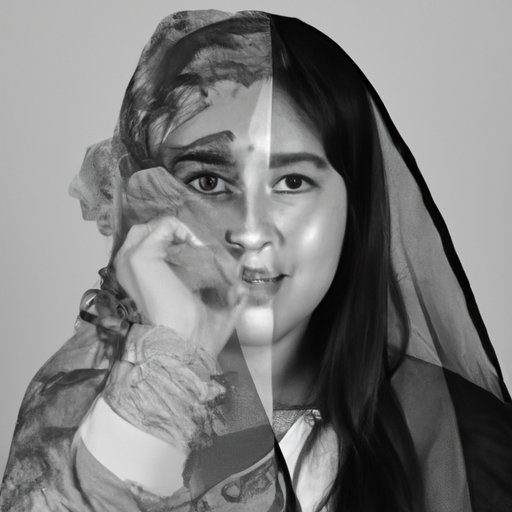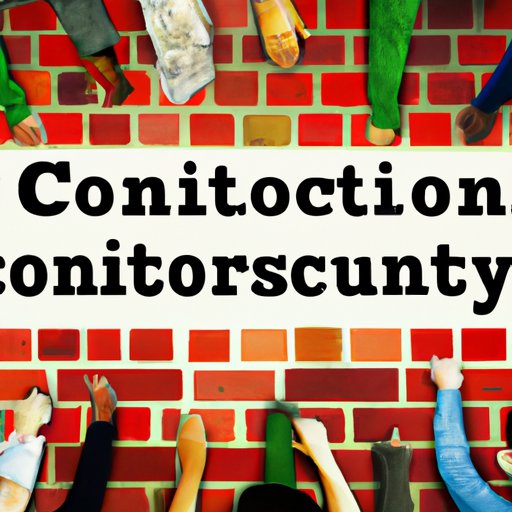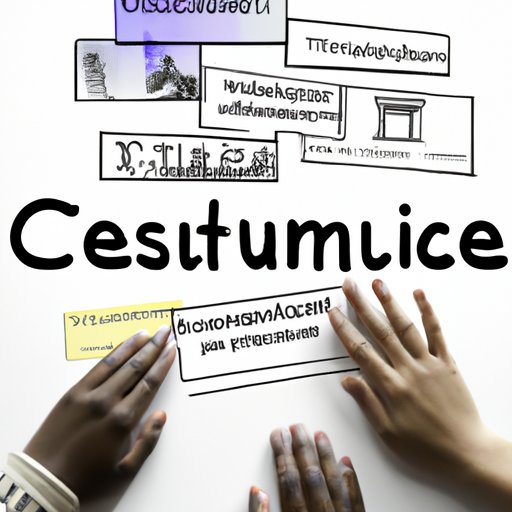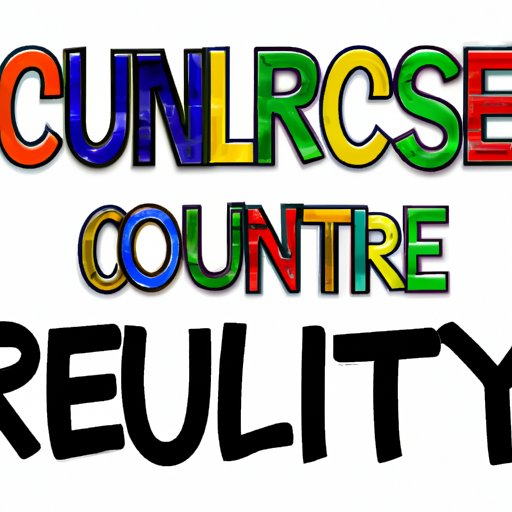Introduction
Culture is a complex concept that encompasses many aspects of human experience. It is often defined as a set of shared values, beliefs, and norms that guide behavior and shape identity. As we move through life, our culture influences how we think, feel, and act. It is a powerful force that shapes our relationships with others, our environment, and even ourselves.
This begs the question: why is culture so important? In this article, we will explore the many benefits of cultural awareness, from shaping individual identities to fostering understanding and respect between different communities. We will also investigate how culture can help to promote economic development, both locally and globally.

Exploring the Role of Culture in Shaping Identities
Culture plays an important role in shaping individual identities. It is through our shared customs, values, and beliefs that we come to understand our place in the world. Our culture teaches us how to interact with others and how to express our thoughts and feelings. It also influences our attitudes towards ourselves and our environment.
The values and beliefs that make up our culture have a profound impact on our identities. These values and beliefs shape our sense of self and determine how we view the world around us. For example, if a particular culture emphasizes the importance of family and community, individuals within that culture may be more likely to prioritize relationships over material possessions.
Language is another key factor that contributes to the formation of identity. Through language, we are able to communicate our thoughts and feelings to others. Language also plays a central role in the transmission of cultural values and beliefs from one generation to the next. By learning the language of their culture, individuals gain access to a wealth of knowledge about their heritage.
In addition to language, tradition is an important aspect of culture that helps to define our identities. Traditions provide us with a sense of belonging and security. They offer us a way to connect with our past and to honor the values and beliefs of our ancestors. From religious ceremonies to seasonal celebrations, traditions play an important role in preserving our cultural heritage.

Examining the Impact of Cultural Diversity on Social Cohesion
Cultural diversity is an important source of strength for any society. It allows us to learn from each other, to challenge our assumptions, and to develop new perspectives. In a diverse society, everyone has something to contribute, regardless of their background or beliefs.
Cultural diversity promotes respect for difference. By recognizing and celebrating the unique contributions of each culture, we can foster a greater sense of belonging and inclusion. This helps to create a more cohesive society where everyone feels valued and respected.
Multicultural dialogue is also essential to social cohesion. By engaging in conversations with people from different cultures, we can gain insights into the values and beliefs that shape their lives. This can help us to better understand each other’s perspectives and to find common ground.
Finally, cultural diversity encourages equity and inclusion. By creating equal opportunities for all members of society, regardless of their cultural background, we can ensure that everyone has the chance to reach their full potential.

Investigating How Culture Can Help to Foster Understanding and Respect
Cultural awareness can help to foster understanding and respect between different communities. By learning about different cultures, we can begin to appreciate the unique ways of life that exist around the world. This can help to break down stereotypes and prejudices and to build bridges between communities.
Intercultural communication is also essential to promoting understanding and respect. By engaging in meaningful dialogue with people from different cultures, we can gain a deeper appreciation of their values and beliefs. This can lead to greater empathy and understanding, which can help to build trust and cooperation between different groups.
Finally, cultural exchange is an important tool for fostering understanding and respect. By sharing ideas and experiences with people from other cultures, we can gain a broader perspective on the world. This can help to create a more tolerant and accepting environment, where everyone feels welcome and included.
Analyzing the Effects of Cultural Exchange on Globalization
Cultural exchange is a key component of globalization. By facilitating the flow of ideas and experiences between different cultures, it helps to increase cross-cultural awareness and understanding. This can lead to stronger economic relationships between countries, as well as increased opportunities for education and trade.
Globalization also has the potential to strengthen cultural ties between different countries. By connecting people from different backgrounds, it can help to create a sense of shared identity and purpose. This can lead to greater collaboration and cooperation between nations, as well as more harmonious relations between different cultures.
Investigating the Role of Culture in Economic Development
Culture plays an important role in economic development. It can stimulate local economies by promoting tourism and investment. It can also influence investment decisions, as investors often consider cultural factors when making decisions about where to invest.
Furthermore, culture can help to support technological advancement. By encouraging creativity and innovation, it can help to drive economic growth. It can also provide a valuable source of inspiration for entrepreneurs, who can use cultural themes and symbols to create products and services that appeal to a global audience.
Conclusion
In conclusion, culture is an essential part of our lives that shapes our identities and informs our behavior. It plays an important role in promoting social cohesion, fostering understanding and respect between different communities, and stimulating economic development. By embracing cultural diversity, we can create a more inclusive and equitable society that celebrates the many benefits of cultural awareness.
(Note: Is this article not meeting your expectations? Do you have knowledge or insights to share? Unlock new opportunities and expand your reach by joining our authors team. Click Registration to join us and share your expertise with our readers.)
